In honor of my husband’s birthday today, here is an extra Grammar Giggle for you!

In honor of my husband’s birthday today, here is an extra Grammar Giggle for you!

I found this on a page that I was directed to for a case where the order mentions proofreading, but couldn’t get past the title. It is a hard state to spell, but it is correct in the same header. Everything matters.

I saw this van on the freeway recently. I’m not sure why the word “electric” is misspelled on the back of the van when it is spelled correctly on the side. Interesting marketing ploy.
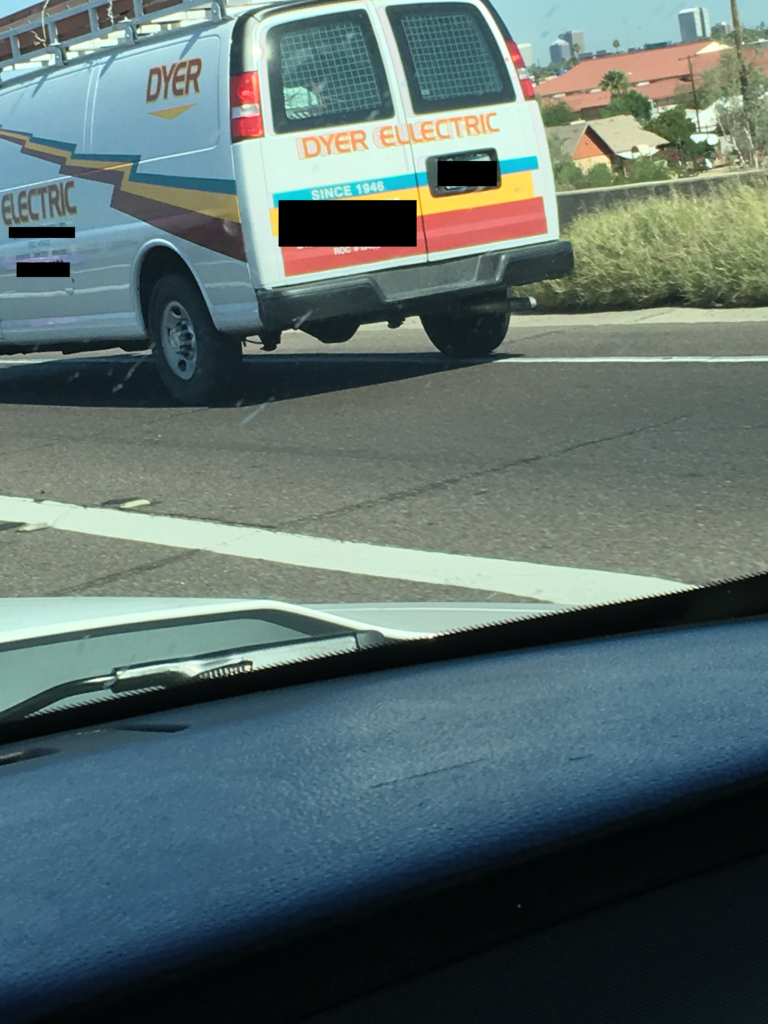
A friend sent this one to me. I can kind of understand a typo buried in a news story, but a typo in a headline just makes you look like either you don’t care enough to review your work or you’re dumb. Don’t be dumb. At least do a quick review of your work.

A friend sent this to me some time ago. I always wonder why grocery stores advertise the “Price without Card” like having the card gives you a deal when the cost is the same or sometimes even shows up higher than without the card. Details matter.

I received this one a while ago and while the bulk of it is OK, multiple errors in one sentence are always troublesome.
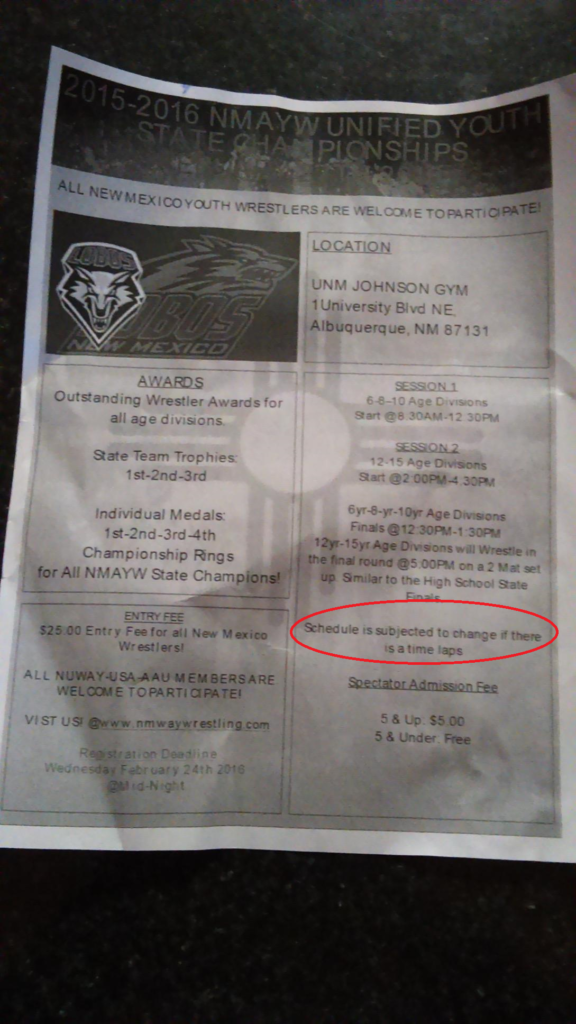
This was in my Facebook feed recently. Apparently this company wanted to get the attention of a house in Mesa for its program. Otherwise, it would have addressed it to Mesa RESIDENTS. And, once again, it also uses an apostrophe to make a word plural. It seems that a company paying to promote an ad would make sure it was correct.
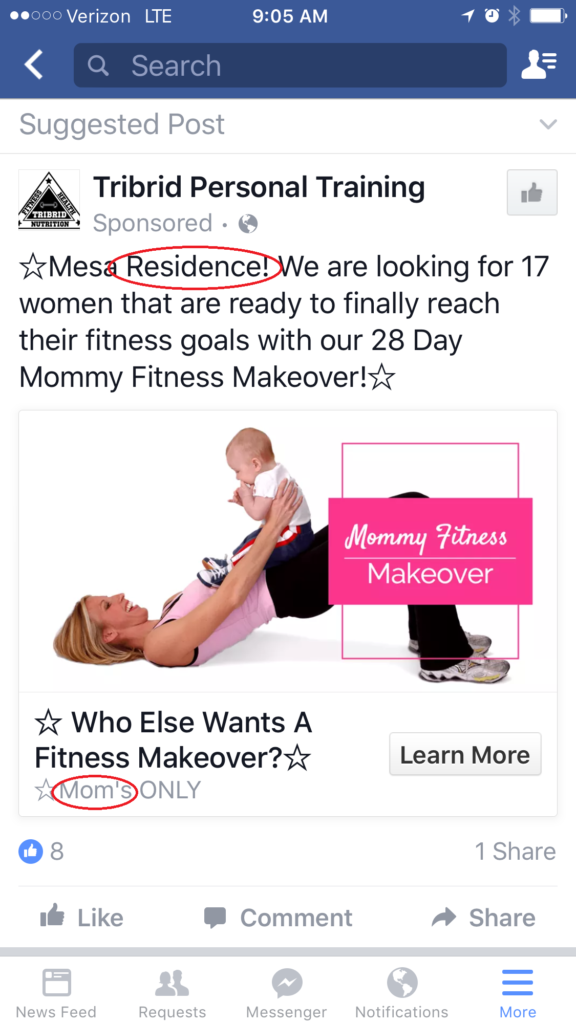
I was in a CVS drugstore recently looking for something searching the aisle markers trying to find what we needed when this gem caught my eye:
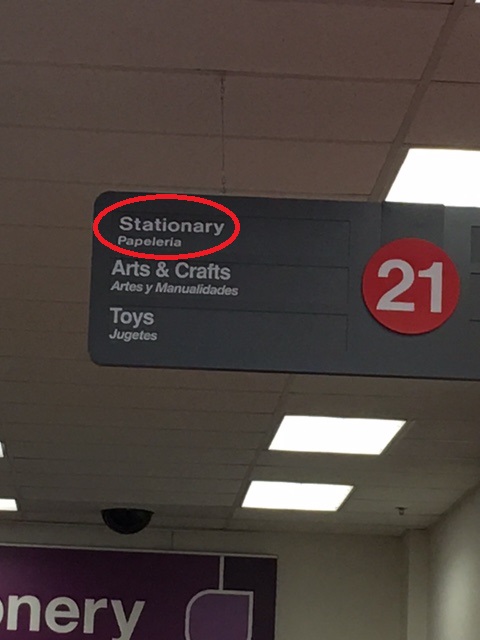
I was taught a long time ago that when you’re talking about products to help you write a lEtter, use the stationEry with an “E.” That tip still holds true. StationAry means to stay in one place unmoving. Unfortunately for CVS they obviously know better because you can see part of an even bigger sign on the wall (but I took another picture to make it easier for you!):
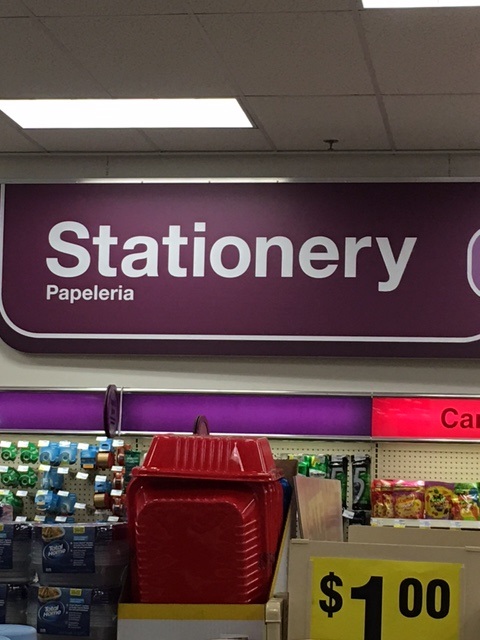
You’ll note that they both have the same Spanish word, so they were attempting to show us where the stationery was located. At least the stationery is stationary!
P.S. – don’t do a Google search for a definition for stationAry, because this will come up:
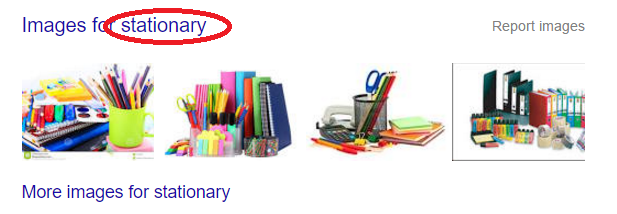
I’m hoping that is only so they can catch people who don’t know the difference, but I’m scared that that is a very big hope!
 The Associated Press Stylebook (AP Stylebook) is used by journalists as their style guide for writing just as The Gregg Reference Manual (a NALS resource for its certification exams), the Chicago Manual of Style, and Strunk & White are used as style guides in law offices and other businesses. The AP Stylebook is regularly updated to reflect new acceptable writing styles. On June 1, 2016, the latest AP Stylebook will be released and includes these updates:
The Associated Press Stylebook (AP Stylebook) is used by journalists as their style guide for writing just as The Gregg Reference Manual (a NALS resource for its certification exams), the Chicago Manual of Style, and Strunk & White are used as style guides in law offices and other businesses. The AP Stylebook is regularly updated to reflect new acceptable writing styles. On June 1, 2016, the latest AP Stylebook will be released and includes these updates:
It appears that the change catching the most attention is no longer being required to capitalize internet and web.
Other interesting changes include:
While most law firms and the legal field in general does not subscribe to the AP Stylebook style, I think it is a sign of other potential changes to be made to the English language in other style guides. I will actually start using the new lowercased internet and web as I agree with the AP Stylebook that these terms have become generic in today’s language. Just remember that anyone taking a NALS certification exam must continue to capitalize them until The Gregg Reference Manual makes the same change.
We received this pleading in our office recently. This is a perfect example of settings in Microsoft Word’s spell check making a huge difference. Check your settings to see if “Ignore Words in UPPERCASE” is checked and uncheck it right now! Headings, titles of pleadings, and other documents include lots of uppercase words and if you’re ignoring them, there could be errors you will miss. At least this person got it right once.
